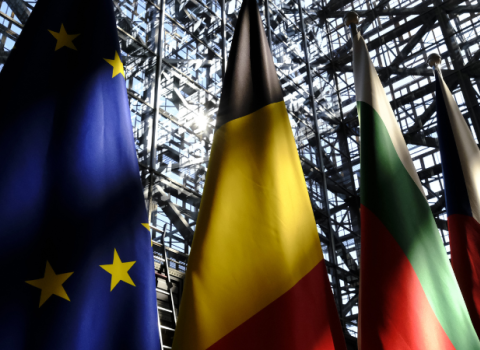
With the exception of nuclear energy, Europeans are more or less as optimistic as people in the US and Canada about technologies ranging from computers and information technology, biotechnology and nanotechnology. The one point of difference is over genetically modified food crops, which Europeans think should not be encouraged because they are both risky and not useful.
The position is strikingly different on nanotechnology. In comparison to people in the US and Canada, Europeans see nanotechnology as more useful, and have greater confidence in regulation on the field.
Nor is there any evidence that younger people are turning against science and technology. The 15 – 25 age group is no less optimistic about technological innovation, no less supportive of nanotechnology, gene therapy, pharmacogenetics, or GM crops, and just as interested in science and technology as older people.
These findings are based on the sixth Eurobarometer survey on biotechnology, which also compared opinions on biotech versus views of other technologies. Previous surveys were carried out in 1991, 1993, 1996, 1999 and 2002.
The good news on the biotech front is that attitudes to biotechnology are thawing.
The “Index of Optimism” for biotechnology declined steeply from 1991 to 1999, mainly as a result of concerns over GM crops. But from 1999 to 2005 the trend reversed, and the index for biotechnology is now back at the same level as 1991. Levels of trust in university and industry scientists, and in the biotech industry itself show a substantial improvement since 1999.
Have accession states changed the science culture?
The survey is based on 25,000 respondents or 1,000 for each of the 25 member states. An interesting factor here is that this is the first time that the views of the public of the ten accession states who joined the EU in May 2004 have been included.
So the question is, have the newer members altered the scientific culture of the EU?
“The answer is probably not,” says the survey. Collectively, the ten newer members are just about as heterogeneous as are the old EU15 countries.
Science has not achieved the same level of penetration, or overall public awareness in the accession states, and in general people are more optimistic about the contribution of technology to society, and have greater trust in the institutions. But as the report notes, “As has been seen in other member states, such views can be subject to dramatic changes.”
More optimistic, more trusting
Overall, the portrait of European citizens painted by the 2005 survey in comparison to earlier ones, shows they are more optimistic about technology, and more informed and trusting of biotechnology regulations and institutions. There is widespread support for medical and industrial biotech, and Europeans are interested in finding out the risks and benefits associated with stem cell research.
While a majority are willing to delegate responsibility on new technologies to experts making decisions on the basis of scientific evidence, a substantial majority would like to see greater weight given to moral and ethical considerations.
There is no evidence that opposition to GM crops is a manifestation of a wider disenchantment with science and technology in general. “Looking across public perceptions of a range of technologies, resistance to GM crops is the exception, rather than the rule,” says the report. Europeans have even become less pessimistic about nuclear power, though the pessimists still outnumber the optimists, even in France.
The message for the agricultural biotechnology sector is that if it wants to be popular, new crops and products have got to be seen to have benefits for the consumer. But the survey shows there is a huge opportunity to turn public opinion about agribiotech around. Only 50 percent of those surveyed had a decided view on GM crops. Of those who have made up their minds 58 percent are opposed. In Spain, Portugal, Ireland, Italy, Malta, Czech Republic and Lithuania, confirmed supporters of GM crops outnumber opponents.
Utility more important than ethics or morals in embryonic stem cell research
One of the most controversial areas of biotech at present is embryonic stem cell research. The survey found considerable support for research in the area, provided it is tightly regulated. Although people tend to be more supportive of using non-embryonic sources of stem cells, the difference is relatively small, 59 percent versus 65 percent.
According to the survey, the majority of Europeans believed that an embryo is human immediately after conception, and there is a dilemma between moral and ethical concerns versus the potential utility of medical applications of embryonic stem cell research.
“Of these two positions Europeans lean towards the utilitarian view; the possible benefits for health and the alleviation of diseases tend to outweigh possible moral objections,” says the report.
Europeans also support the development of nanotechnology, pharmacogenetics and gene therapy, which are all seen as useful to society. Neither nanotechnology or pharmacogenetics are perceived as risky. While gene therapy is seen as posing a risk, Europeans are prepared to discount this as they perceive the technology to be both useful and morally acceptable – surely an important message for the developers of GM crops.
The European public is supportive, but not overwhelmingly supportive, of the use of genetic data for personal medical diagnosis and for gene banks for research into diseases. Fifty eight percent say they would allow their genetic data to be banked fro research purposes, while 36 percent would not. Forensic uses attract the same level of support, while access to genetic information by government agencies and for commercial insurance is widely seen as unacceptable.
But support for gene banks cannot be taken for granted. While 70 percent or more are in support in Sweden, Finland, Denmark and Netherlands, support is only around 40 percent in Germany, Greece and Austria.





 A unique international forum for public research organisations and companies to connect their external engagement with strategic interests around their R&D system.
A unique international forum for public research organisations and companies to connect their external engagement with strategic interests around their R&D system.